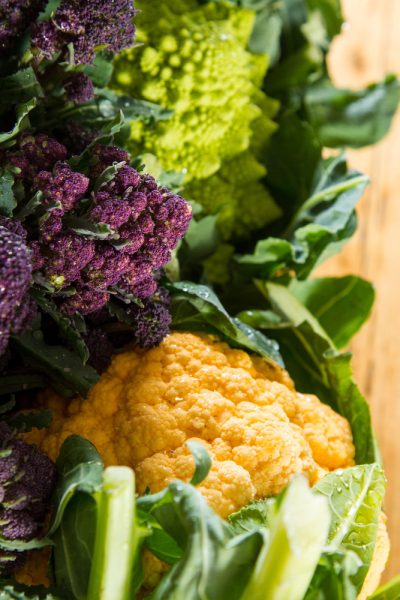What I Wish I’d Known about Brain Health
I walked into the waiting room with my brilliant, charismatic father, my mentor, my friend. He had come all the way from Bolivia to see a neurologist in the Texas Medical Center. “I don’t look like that, do I?” he asked, noticing the patients already there. I shook my head, reinforcing his notion that he didn’t belong there.
A few months earlier he had been diagnosed with Parkinson’s in our hometown Cochabamba, Bolivia. As often happens with the diagnosis of any major disease, particularly one that has no cure, disbelief was forefront. After careful research and months of waiting, we were able to get this appointment with a world-renowned specialist in Parkinson’s disease.
I will always remember that summer day. Going from sweltering Houston heat that sticks clothing to your skin in seconds between the parking garage and the frigid blast of air-conditioning upon entering a building.
Disbelief is the first stage of grief. It would morph into a roller coaster of bargaining, anger, grief, depression, acceptance, resistance and learning over the next fourteen years.
This is what I wish I had known that fateful day when my beloved daddy received confirmation of a Parkinson’s diagnosis. Cognitive decline is not inevitable. We can reduce the risks, and progression, of degenerative brain diseases.
- Food REALLY matters – Eat real food from nature. Get the right balance of macronutrients: quality protein, fats from nature, and carbs from plants. Essential fatty acids are especially critical for the brain. Avoid processed foods, minimize sugar and refined grains (wheat flour especially). There is a strong correlation wiht sugar and Alzheimer’s, so much that Alzheimer’s is called Type 3 diabetes.
- Micronutrients matter. Vitamins, essential minerals and phytochemicals (natural chemical compounds in platn foods that have protective and healing effects). Key micronutrients like Vitamin B and D and Omega-3 fatty acids are critical for normal brain function across the lifespan. Low levels can increase the risk of neurodegeneration. Get your micronutrients by eating a WIDE diversity of plant foods, including nuts and seeds, herbs and spices.
- Digestion matters – Digestion is the chemical and mechanical breakdown of food. Proper digestion releases nutrients for absorption through the lining of into the bloodstream and carried wherever needed. If digestion doesn’t function properly, nutrients are not adequately absorbed and delivered to the brain and rest of your body.
- Gut health matters– Gut is the gastrointestinal system (GI) made up by the esophagus, stomach, small and large intestine. Gut health is directly linked to brain health. People suffering from Parkinson’s have different patterns of gut dysfunction than healthy people. Gut dysbiosis (dysfunction) plays a pivotal role in the development and progression of Parkinson’s disease, and is also linked to depression and anxiety.
- Sleep matters – Improving your sleep promotes brain health and may reduce risks of developing Parkinson’s/cognitive decline. Your brains is most active when asleep — storing memories, removing toxins and waste, making repairs. Build a regular sleep routine in and in a dark room free of light pollution from electronic devices.
- Stress matters – Stress, anxiety, depression and strong negative emotions decrease brain activity. The communication between the brain and gut is clearly related to chronic stress. Excess cortisol (stress hormone) over time interferes with neuronal plasticity—the brain’s ability to adapt and learn, can lead to a suppressed immune system, and to full-blown depression.
- Toxins matter – Environmental toxins, toxic mold, and air pollution are significant contributing factors in the development of Parkinson’s disease. Avoid, or minimize, the most pesticide-laden produce. There is a direct correlation with pesticides in Parkinson’s patients, and also with dry cleaner chemicals. Drink filtered water, invest in a water filter at home. Heavy metals such as mercury and aluminum can present dementia-like systems.
- Movement matters – Aerobic exercise (like walking) enhances neuroplasticity, promotes the growth and survival of neurons and appears to have the most favorable effects on brain health and Parkinson’s disease progression.
What to do?
- Eat food as close to nature as possible. To support a healthy gut and a healthy brain, gradually increase consumption of plant foods until you reach 8 servings/day. Eat a variety of types and colors: leafy greens, cruciferous vegetables, rainbow vegetables and fruits, beans, nuts and seeds, herbs and spices. Aim for 2 – 3 colors at each meal. Purple/blue/red foods are especially beneficial for brain health
- Improve your digestive function and your gut health
- Build sustainable stress resiliency practices — mindful breathing, movement, gratitude, nature…whatever works best for you.
- Honor your sleep
- Reduce your exposure to toxins
I will always wonder – what if we had known this information years ago? How different would the outcome have been for my dad, for his quality of life? For all of us who loved him?

Former Congressman, senator, ambassador, powerful historian that he was, visionary and architect of democracy, how much more could he have contributed to the nation he so dearly loved? And to the cause of democracy he dedicated his whole life to?
I will never know. What I do know is that with this knowledge about functional nutrition and the brain, I can help others to improve cognitive function, physical vibrancy and reduce risks of degenerative brain diseases. Change-maker that he was, my amazing father would love that.
Call to Action
- Subscribe for updates. I post about good mood foods that nourish your body for mental fitness and brain health and the above ways to optimize your wellbeing.
- Set up a FREE Discovery Call to see how we could work together to address your health challenges from the inside out.
Updatedfrom December 2021 post.



